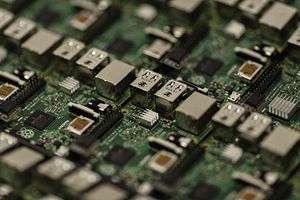North Korea’s flagship Mirae Department Store has a special membership program: It gives away a huge discount to scientists working for government-backed organizations. They get to purchase up to $800 worth of products by paying just $30, according to South Korea’s Science and Technology Policy Institute.
Since Kim Jong Un became leader in 2013, when North Korea laid out its plans to nurture a knowledge-based economy, the country has repeatedly stressed the importance of achieving that goal.
And Lee Choon-geun, a senior researcher at Science and Technology Policy Institute, believes that North Korea’s efforts have become more evident in recent years. He cited Pyongyang’s efforts to nurture scientists and offer them different types of benefits as an example. The discount program for scientists at the department store is just one of these incentives.
North Korea is currently nurturing scientists through about 130 government-backed organisations under the Academy of Sciences, according to Lee. They enjoy not only economic benefits but also academic support from the central government.
For instance, North Korea reportedly plans to hold up to 30 events, including seminars or conferences, covering scientific subjects in 2019. Nineteen such events are planned for between June and December, covering a variety of topics such as architecture, information technology, and robots. The events are a combination of domestic and international, with some participants from overseas, including China.
Pyongyang has also been working to improve the legal situation to bolster the science sector.
North Korea’s state-run Rodong Sinmun newspaper said in an editorial on May 19 that it is vital to set up or revise laws related to the science field in order to progress the country’s economy and support its companies. The paper added that it is an essential task to make North Korea “stronger.”
In particular, Rodong Sinmun stressed the need for revamping laws related to the educational sector. The paper also said the country should focus on laying a legal groundwork to nurture more talents in the science field. It argued for making more detailed and segmented laws, in order to guarantee a competitive business environment for domestic companies so that they can produce more.
North Korea’s policy to nurture science and technology talent is gradually paying off, according to Lee from South Korea’s Science and Technology Policy Institute.
While North Korea has relied on imports for hardware, it uses self-developed software for computers and mobile devices. Tablet PCs produced by North Korea, for instance, are equipped with their own software after importing substrates from China.
This is a common topic covered by North Korea’s propaganda media outlets to promote its achievement in software development.
Korea Central News Agency reported in early May that the North’s Kim Chaek University of Technology developed about 400 software programs over the past three years while making about 1,000 unspecific scientific achievements during the same period.
Recently, however, North Korea has gradually improved its hardware production capacity as well, Lee explained.
Why is North Korea so eager to nurture and promote its science sector?
The United States has been tightening its sanctions network against North Korea since the collapse of the second U.S.-North Korea summit, but the development of the science sector gives North Korea more options for enduring the pressure, Lee explained.
“Kim Jong-un has tried to cultivate the light industry and information technology sectors, which can make profits from small investments rather than making excessive facility investments,” said Lee, adding that if Kim were to make large-scale investments as his father did, it would deal a significant blow to the North’s economy.

































